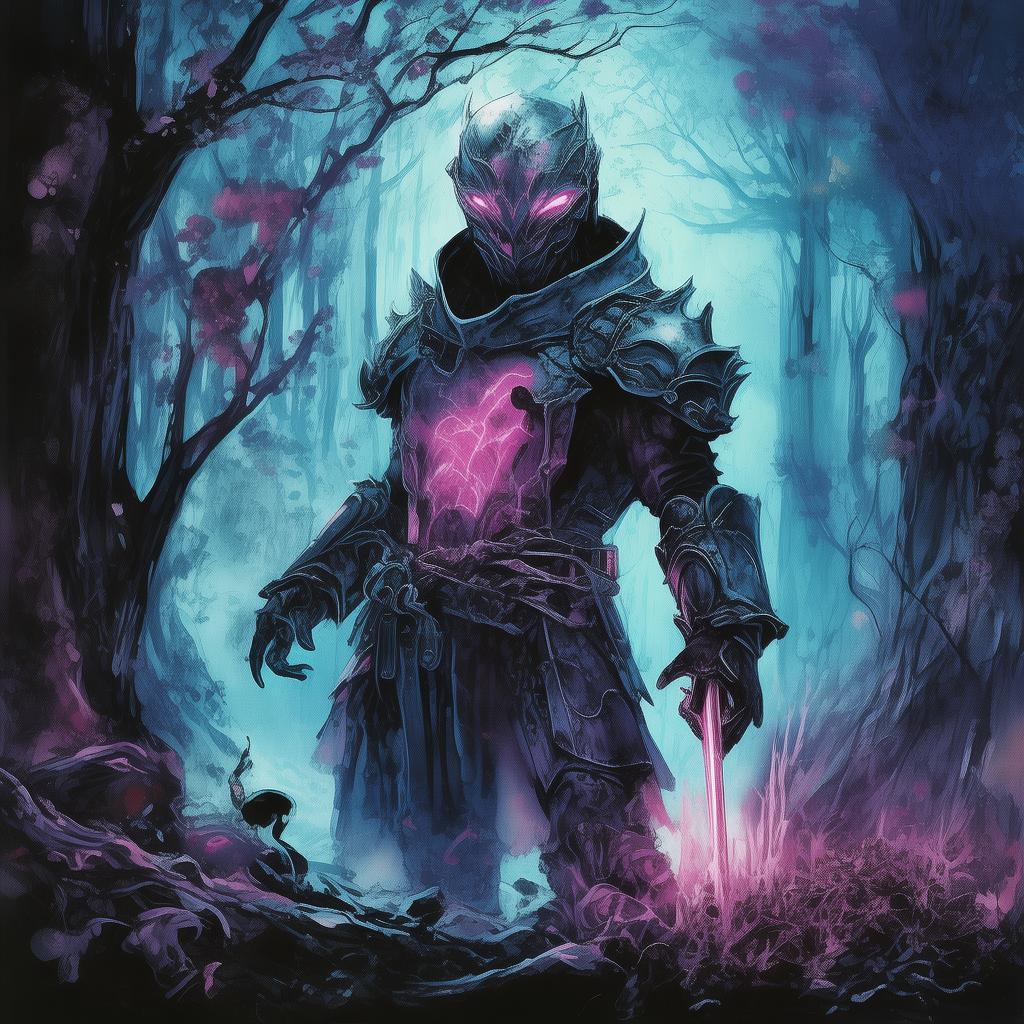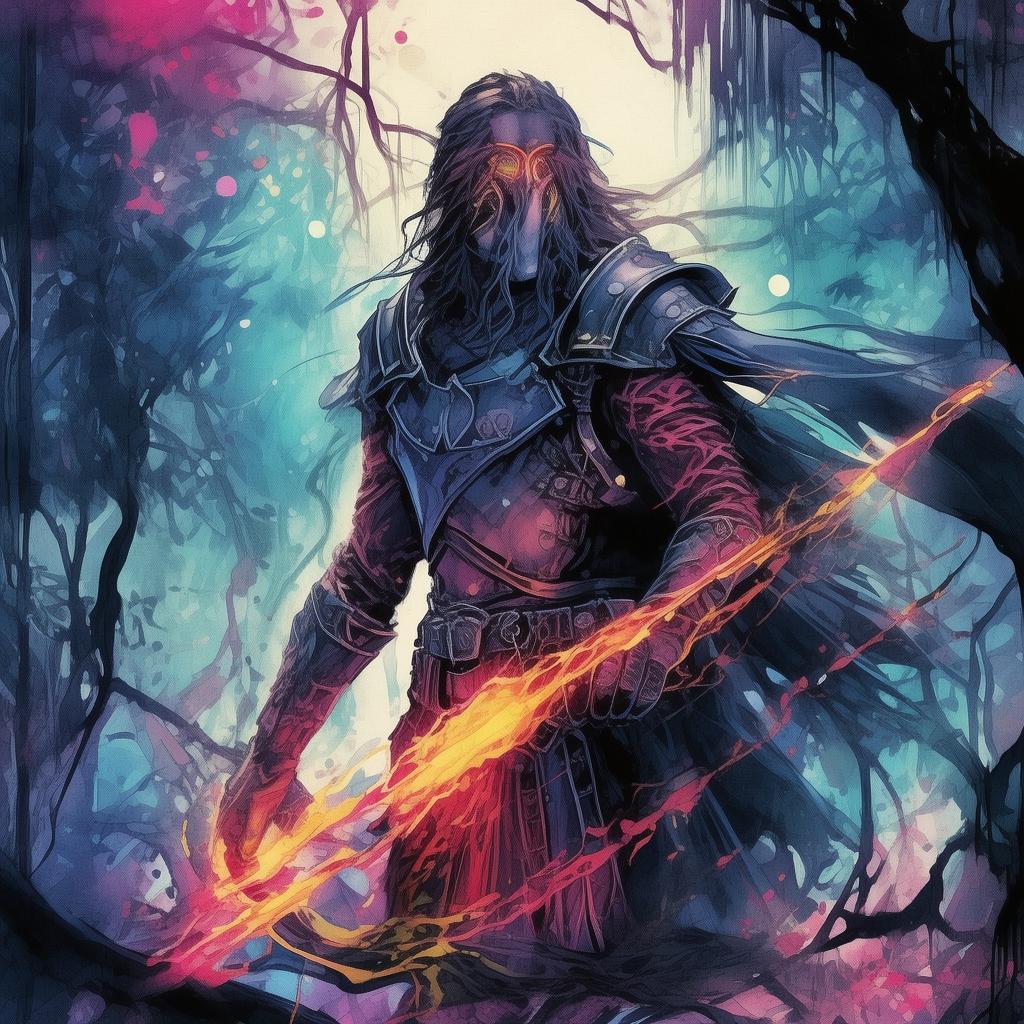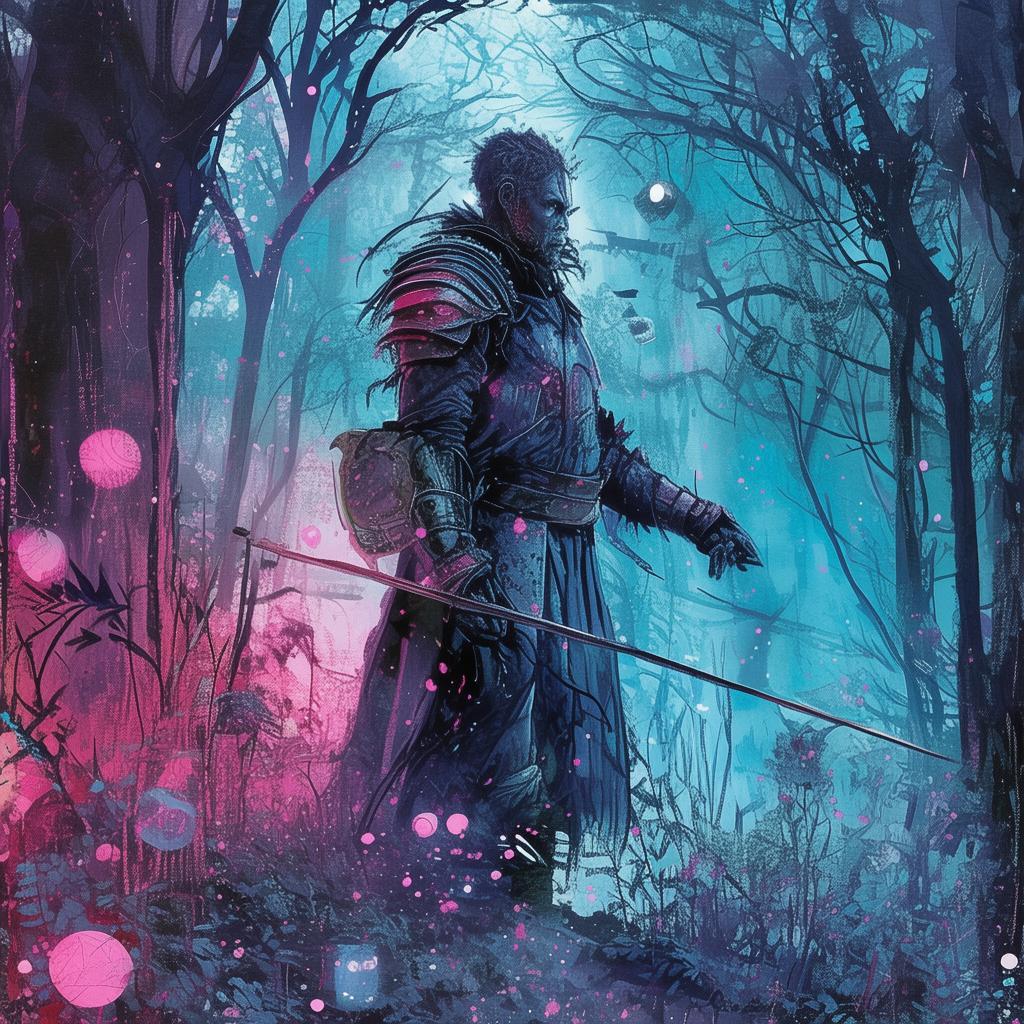The Unseen Blade: A Tale of Vengeance and Redemption
In the heart of ancient Japan, there lay a tale of a samurai named Masato, whose life was irrevocably altered by the shadow of his past. The story begins with a blood-stained dawn, where Masato discovers his beloved master, Lord Yuki, lying in a pool of his own blood. The culprit? A rival samurai, Ryo, who had betrayed their sacred bond of honor.
The village was in an uproar, and the villagers demanded justice. Masato, driven by a burning desire for revenge, vowed to avenge his master's death. Yet, as he embarked on his quest, he realized that his path was fraught with moral ambiguity. The samurai code, known as Bushido, dictated loyalty, honor, and respect, but the path of vengeance seemed to contradict these virtues.
Masato's journey took him through the lush forests and rugged mountains of Japan. Along the way, he encountered various ronin, samurai without a master, each with their own tales of betrayal and loss. They shared stories of the unseen code that bound samurai together, a code that was as much a part of their soul as their sword. It was a code that demanded they honor their word, respect life, and live with integrity.

One such encounter was with a wise old ronin named Takashi, who had once been a highly respected samurai himself. Takashi told Masato of the time he had to make a difficult choice: to honor his master's dying wish or to seek revenge. In the end, he chose to protect his master's legacy, which led him to a life of seclusion and contemplation.
Takashi's words resonated with Masato, and he began to question his own motives. He realized that his thirst for revenge was clouding his judgment and could lead him down a dark path. As he grappled with his inner turmoil, he started to understand the true essence of Bushido.
One night, as Masato camped in the forest, he had a vision. In the dream, Lord Yuki appeared to him, not as a man of blood and death, but as a spirit of wisdom and guidance. Lord Yuki spoke to Masato, urging him to find the strength within himself to honor his master's life, not just his death.
Inspired by his master's words, Masato decided to change his course. Instead of seeking revenge, he would seek justice, ensuring that Ryo would face the consequences of his actions. He would do this not as a vengeful samurai but as a samurai who honored the true spirit of Bushido.
Masato's quest led him to a secluded temple, where Ryo had taken refuge. As he approached the temple, he was greeted by a young monk who recognized him from the village. The monk, understanding the gravity of the situation, led Masato to Ryo.
The two samurais faced each other, their swords drawn, but their hearts were heavy with the weight of their past. Ryo, realizing the gravity of his actions, confessed his betrayal and asked for forgiveness. He explained that his own dishonor was the true reason behind his actions, and he had sought refuge in the temple, hoping to atone for his sins.
Masato, moved by Ryo's sincerity, decided to spare his life. Instead, he challenged Ryo to leave the path of dishonor and seek redemption through self-imposed discipline and service to others. Ryo accepted the challenge, and the two samurais parted ways, each bound by a new understanding of honor and the unseen code.
Masato returned to the village, his journey complete. He was greeted with both suspicion and admiration. The villagers were relieved to see him return unharmed but puzzled by his decision to spare Ryo's life. Masato explained that his master's spirit had guided him to a path of justice and redemption, and that he had found the true essence of Bushido.
As the tale of Masato spread through the land, it became a symbol of hope and a testament to the power of honor. The unseen code, once a mystery to many, was now a beacon of guidance for those who sought to live a life of integrity.
In the end, Masato found peace within himself, knowing that he had honored his master's memory and the samurai code. And so, the story of The Unseen Blade became a legend, a tale that would be told for generations, reminding all who heard it of the unseen code that bound samurai together and the strength of honor that lay within each of them.
✨ Original Statement ✨
All articles published on this website (including but not limited to text, images, videos, and other content) are original or authorized for reposting and are protected by relevant laws. Without the explicit written permission of this website, no individual or organization may copy, modify, repost, or use the content for commercial purposes.
If you need to quote or cooperate, please contact this site for authorization. We reserve the right to pursue legal responsibility for any unauthorized use.
Hereby declared.









